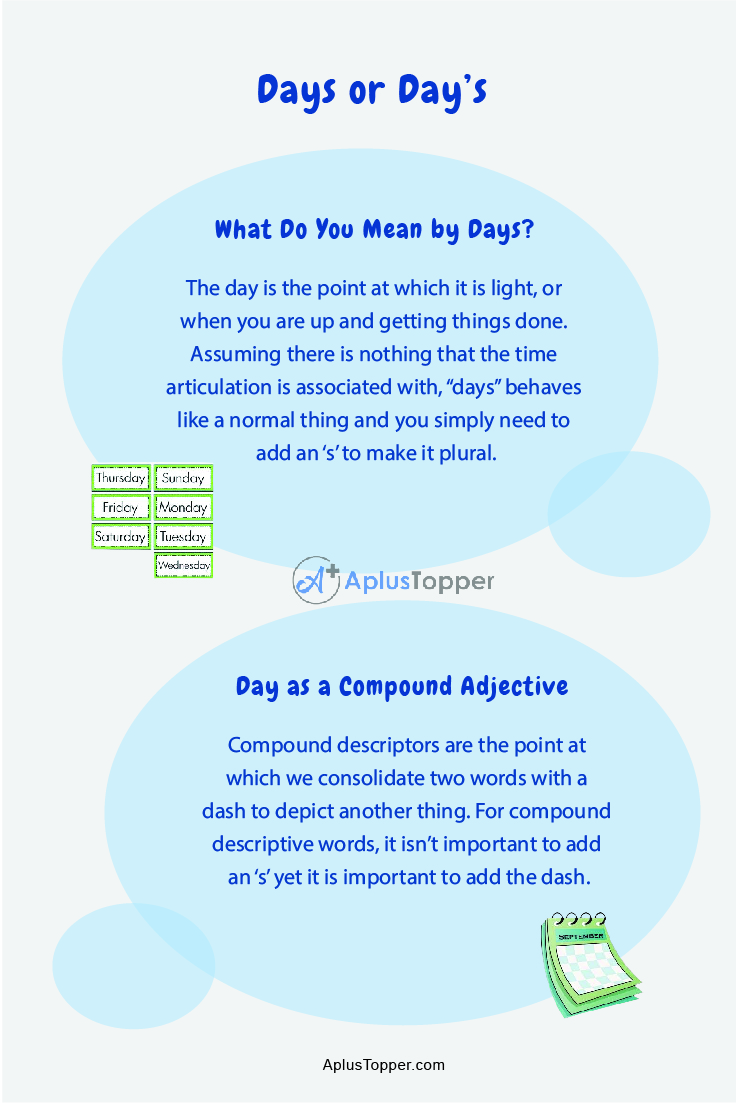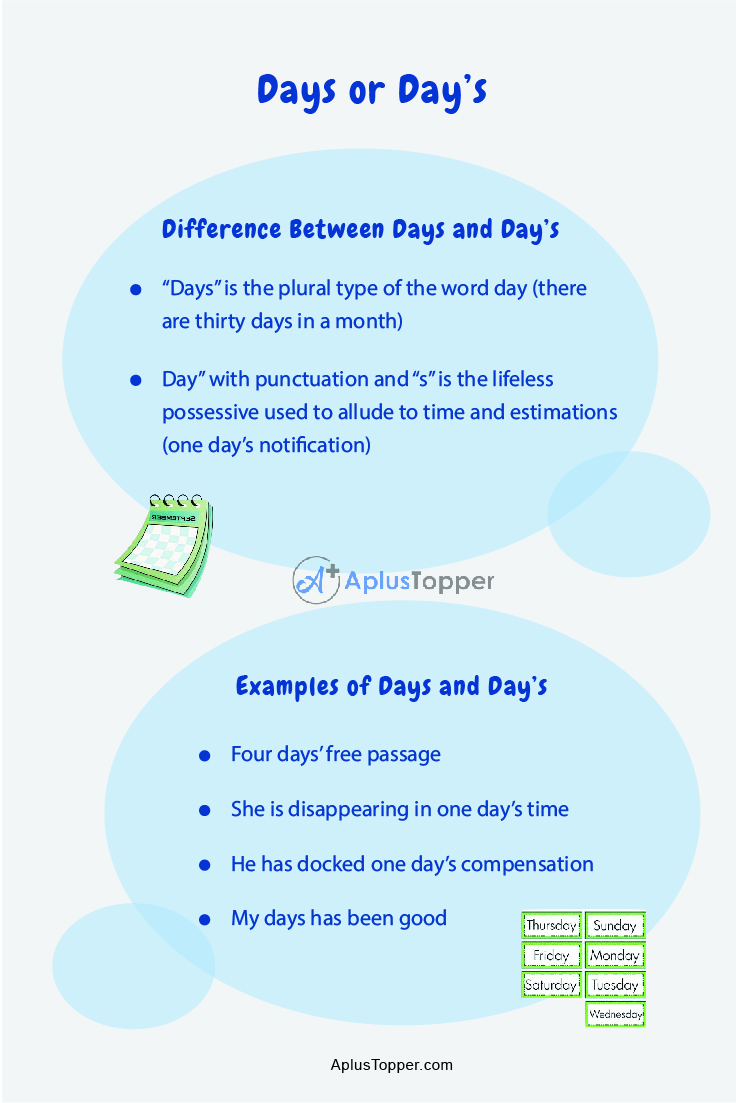Days or Day’s: Days is the plural form of day and day’s is the possessive form of day. Time articulations can be interesting to use with punctuations. day’s, days’, and days are truth be told all right contingent upon the specific circumstance.
Days is utilized for the plural of day. Day’s and days’ are utilized in compound time articulations. Day’s is utilized with a particular time unit and days’ is utilized for a plural when day is possessive. Is it 3 days start or 3 day start?
You wanted to put the punctuation before the s when you are expounding on a particular time(one day, one month, one year) and after the s when it is a plural time(two days.Three days, four days)
Notice that we possibly need to do this when we incorporate the thing that the time articulation is about(possessive). We possibly do this when we can supplant the punctuation with of.
What Do You Mean by Days?
The day is the point at which it is light, or when you are up and getting things done. Assuming there is nothing that the time articulation is associated with, “days” behaves like a normal thing and you simply need to add an ‘s’ to make it plural.
- I wanted to begin work in one day.
- I wanted to begin work in two days.
Day as a Compound Adjective
Compound descriptors are the point at which we consolidate two words with a dash to depict another thing.
- He required two-day trips.
- The bundle incorporates a one-day safari.
For compound descriptive words, it isn’t important to add an ‘s’ yet it is important to add the dash.
Difference Between Days and Day’s
- “Days” is the plural type of the word day (there are thirty days in a month)
- “Day” with punctuation and “s” is the lifeless possessive used to allude to time and estimations (one day’s notification)
In case you are alluding to “one” unit of time, you’ll put the punctuation after the word followed by the “s” (one day’s notification)
In case you are alluding to more than one unit of time, you’ll put the punctuation after the plural type of the word (30 days’ notification)
- Day’s – To show the day’s ownership, which can be a character or things about it
- Days’ – To show over one day having a belonging, actually like day’s nevertheless over one day.

Examples of Days and Day’s
- Four days’ free passage
- She is disappearing in one day’s time
- She is disappearing in two days’ time
- He has docked one day’s compensation
- He has docked two days’ compensation
- My days has been good
At the point when you allude to one day, you’ll utilize the particular type of day with the punctuation after.
At the point when you are alluding to numerous long stretches of notice, you’ll utilize the plural type of day and afterwards the punctuation.
Similar Words
- Weeks and week’s
- Months and month’s
- Friends and Friend’s
Use of Nowadays
Nowadays ought to never be utilized as a descriptive word—you can’t say that your vehicle is these days vehicle. At the point when you start your sentence with these days, you should set it off with a comma, as it’s early on the component.
You ought to likewise recall that these days aren’t generally used to depict something brief that turns out to happen right now. It generally alludes to something that has become normal in the occasions we are alluding to.

FAQ’s on Days or Day’s
Question 1.
Is it a day’s worth or days worth?
Answer:
It is a day’s worth. Whatever the justification for our mistakes, worth, purpose, and related expressions do utilize punctuation to settle on what we normally decision a possessive case however what is really one more of the genitive cases. It’s right to compose: For’s the love, I have two days of work to do after only one excursion day.
Question 2.
Is it 2 day or 2 days?
Answer:
The correct answer is 2 days. Two-day is an adjective.
Question 3.
Is it day’s notice or days notice?
Answer:
It is a day’s notice.
Question 4.
How to use day’s and days?
Answer:
“Days” is here the plural type of “day”. “Day’s” is the possessive type of “day”. You’ll utilize the word day without punctuation when you allude to the word ‘day’ in plural like “there are numerous days in a year”.
